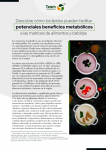China and Canada strike canola research deal
The National Research Council Canada (NRC) and the Oil Crops Research Institute of the Chinese Academy of Agricultural Sciences have agreed to collaborate on genetic research to improve the production of the crop.
The first project under this agreement is to complete genomics work on canola to identify genes that affect yield and adaptation to various environmental stresses.
Dr. Han-zhong Wang, Director of the Oil Crops Research Institute, said: "Food and energy shortages are an escalating problem and increasing canola productivity is something that can help these global issues.
"This agreement makes eminent sense, given that Canada is where canola was developed."
In Canada, annual exports of canola seed, oil and meal are valued at over $3bn and nearly 75 percent is exported to destinations such as China the United States, Japan and Mexico.
The Canola Council of Canada describes China as an intermittent customer, but it has become a focus of the industry’s market development work.
Alternative oils
Canola is grown mainly in Western Canada, Australia and the USA. High-yielding canola is important so that growers can maximize the revenue of their farm.
Consumer demand has been a driving force in the canola market as customers are increasingly demanding oils with no trans fat and low levels of saturated fat.
Trans fats have been linked to health risks as diverse as cardiovascular disease and prostate cancer. High stability canola oil does not require hydrogenation and can be used successfully as a repeat use frying oil.
Hydrogenated soy oil has tended to be the preferred option to cut trans fats, but there are clear signs that canola oil is starting to attract more attention and demand.
Funding
Under the new deal the institute in China will contribute funds of $300,000 over the next five years and the NRC Plant Biotechnology Institute will contribute $210,000 worth of facilities and analytical resources to complete the first project.
Dr Roman Szumski, NRC's vice-president, life sciences, said: “This is a historic event where, for the first time, China is investing directly in agricultural research in Canada to advance a crop important to both countries,"
“This collaboration will help Canada and China develop higher yielding canola, increasing both our countries' reputations for scientific excellence in agricultural research and creating a competitive advantage for Canadian and Chinese agricultural producers."
The NRC claims to be recognized globally for research and innovation, conduciting collaborative plant biotechnology research with universities, government agencies and industry. The aim is to then translate research into commercial products in Canada.
The Oil Crops Research Institute is one of China's leading centers for canola research and for the development of elite rapeseed germplasm.
Industry research
The food industry is also contributing to research to help increase canola yield.
Cargill is to open a new research and production centre for specialty canola oils in November which will demonstrate the performance of both current and future canola varieties.
The Specialty Canola Oils Research and Production Centre, located near Cargill's canola crush facility in Clavet, Saskatchewan, Canada, will support the company's specialized hybrid breeding and production trials, with a focus on developing high-yielding agronomic traits and the next generation of output traits.
The site has been used for field trials for several years but Cargill said the new centre consolidates its efforts in one place and provides canola growers a single location to see new varieties.
Ultimately help meet the demand for oils with zero trans fats and lower saturated fat.















